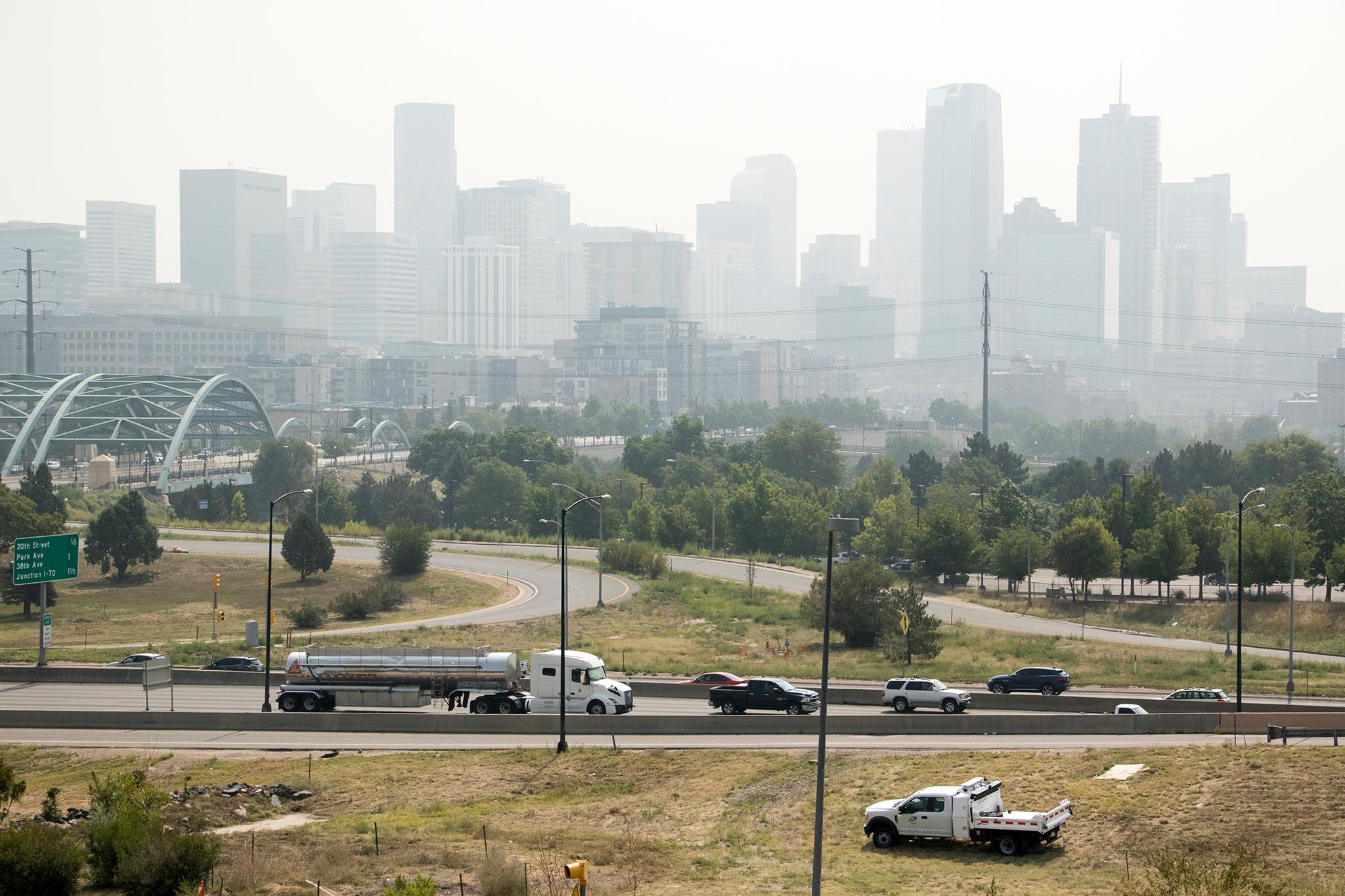
A controversial air quality bill is on its way to Gov. Jared Polis, but only after progressive lawmakers removed a central permitting reform plan amid opposition from the administration and the oil and gas industry.
It's now unclear if the weakened bill has the governor's support.
"The Governor and his team will review this bill in its final form," said spokesperson Conor Cahill.
The legislation won final approval in the state Senate Monday. If it becomes law, it'd require state oil and gas regulators to assess the collective air quality impact of fossil fuel operations and update the process for pollution complaints from the public. State lawmakers would also form an interim committee to propose further ideas, but a last-minute amendment strips its power to propose new measures for the next legislative session.
That's a far cry from the original version of the bill, which included a plan to revamp Colorado's process to permit new oil and gas wells and other industrial sites. Under the scrapped provisions, state regulators could have denied permits for projects if they imperiled efforts to comply with the U.S. Clean Air Act.
Clean air advocates wish those pieces hadn't been gutted but still want the governor to sign the diluted bill into law.
"It's still an important step forward," said Kelly Nordini, the executive director of Conservation Colorado. "It gives us a pathway to fight for the clean air that Coloradans should expect."
That fight is now a higher priority thanks to the U.S. Environmental Protection Agency. Last year, the federal agency reclassified a nine-county region along the Front Range as a severe air quality violator due to persistent ground-level ozone pollution. The dangerous lung irritant forms when two categories of "primary" pollutants — nitrogen oxides and volatile organic compounds — react in the atmosphere amid heat and sunlight.
A recent state analysis revealed oil and gas operations are the largest local contributor to the crisis. If fact, the estimates suggest drilling and fracking alone — two processes that tend to rely on massive internal combustion engines — account for more ozone ingredients than every vehicle in the region.
By reforming the permitting process, clean air advocates hoped to limit further drilling while the state crackdowns on other emissions sources like vehicles and lawn equipment. Colorado currently permits about 800 new oil and gas wells each year.
Those plans hit a snag when Gov. Polis revealed his own ozone plan in March. It directed state regulators to set pollution reduction targets for the oil and gas industry and, at the same time, warned the legislature’s permitting reform proposal would overburden state regulators.
In the meantime, a coalition of business groups led by the Colorado Chamber of Commerce launched a campaign to oppose the ozone bill, warning it could harm oil and gas companies, bakeries and breweries.
Fossil fuel groups now want Gov. Polis to veto the weakened version of the legislation. In a statement, Kait Schwartz, the director of the Colorado chapter of the American Petroleum Institute, said the final plan duplicates ongoing state regulatory efforts.
"Colorado’s natural gas and oil industry will come to the table in good faith, as it always does, but remains deeply frustrated with the process and clear lack of understanding that brought us here," Schwartz said.









